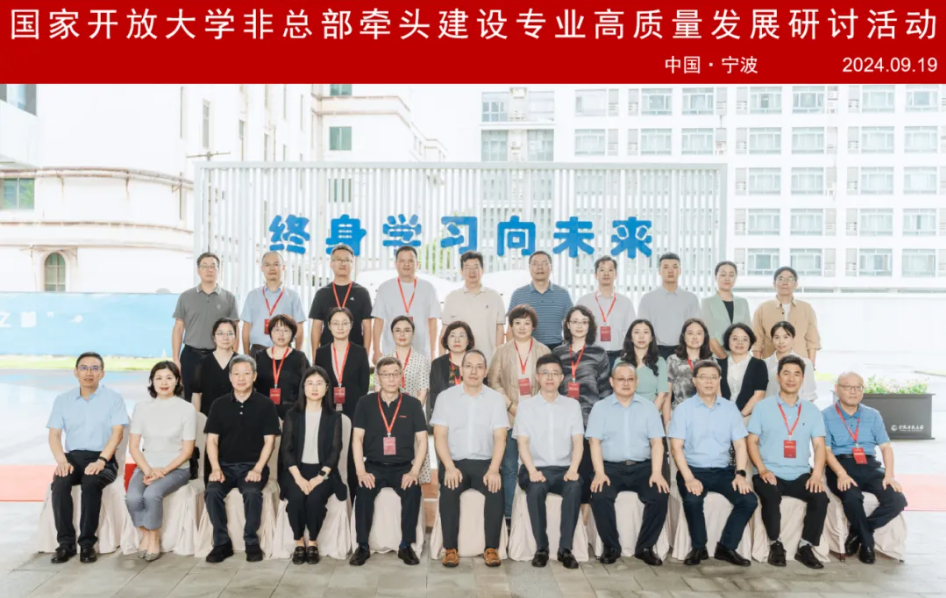 On 19 September 2024, the Open University of China (OUC) hosted a seminar on the high-quality development of programmes led by branches (schools) in Ningbo. T
On 19 September 2024, the Open University of China (OUC) hosted a seminar on the high-quality development of programmes led by branches (schools) in Ningbo. T
he event aimed to consolidate the strength of the OUC system and explore ways to develop distinctive, high-quality, and branded programmes led by various branches (school). Li Song, a member of the Party Committee and vice president of the OUC, attended the event. Over 30 participants, including university leaders in charge of teaching, heads of academic affairs, and programme leaders from Ningbo Open University and other branches (schools) within the open education system, were present. The seminar was chaired by Gu Xiaohua, director of the OUC Academic Affairs Department.

Li Song highly praised the achievements of the branch-led programmes. He stated that over the past 22 years, these programmes have played a significant role in enhancing the cohesion of the educational system, improving the reputation of the open university, and serving the local socio-economic development. Li Song emphasised that at this critical moment of deeply studying and implementing the guiding principles of the 20th CPC Central Committee's Third Plenary Session and the guiding principles of the National Conference on Education, the OUC system must deeply understand the scientific meaning of building a leading country in education and recognise the importance of running high-quality shared programmes. He called for in-depth research on the development paths for these programmes.
Li Song outlined five key principles for the future development of branch-led programmes. Firstly, adhere to the fundamental task of fostering virtue through education, exploring methods for large-scale online ideological and political education tailored to adult education. Secondly, serve national strategies and social needs by highlighting local characteristics and advantages, aiming to align with job competence to cultivate application-oriented talent for national development. Thirdly, promote inclusiveness and equity in education, using digital intelligence technologies to bridge educational gaps and enhance public services for lifelong learning. Fourthly, ensure coordinated advancement within the system by clarifying responsibilities, rights, and interests, facilitating communication platforms, and achieving multidimensional co-construction and co-sharing. Fifthly, empower programme development with digital intelligence, leveraging these technologies to enhance student learning, teacher teaching, teaching evaluation, and educational governance, effectively driving the digital transformation of programs. He emphasised that each programme construction unit must assume primary responsibility, focus on the present, look to the future, adapt to the changing times, create distinctive features, strengthen their brands, and better serve the development of a society and country of learning where lifelong learning is pursued by all.
Participants introduced the development status of their respective programmes and shared practical exploration experiences and achievements in areas such as ideological and political education systems, university-enterprise cooperation, integration of job training, competitions, courses, and certifications, development of "dual-qualified" teaching workforce, teaching team development, multimedia teaching materials, micro-course resources, virtual training and practice bases, and AI-assisted teaching. They also engaged in in-depth discussions on issues and challenges related to institutional design, breaking internal system cycles, promoting high-level faculty development, resource co-construction and co-sharing, digital platform development, sharing teaching data, publishing teaching materials, and communication mechanisms.
The seminar was lively and productive, with the participants' sharing and suggestions effectively promoting programme construction and development. Moving forward, the OUC will continue to focus on institutional construction, platform development, communication mechanisms, and support services, consolidating the strength of the educational system, promoting co-construction and co-sharing, and collaboratively advancing the high-quality development of branch-led programmes.
By Academic Affairs Department, OUC